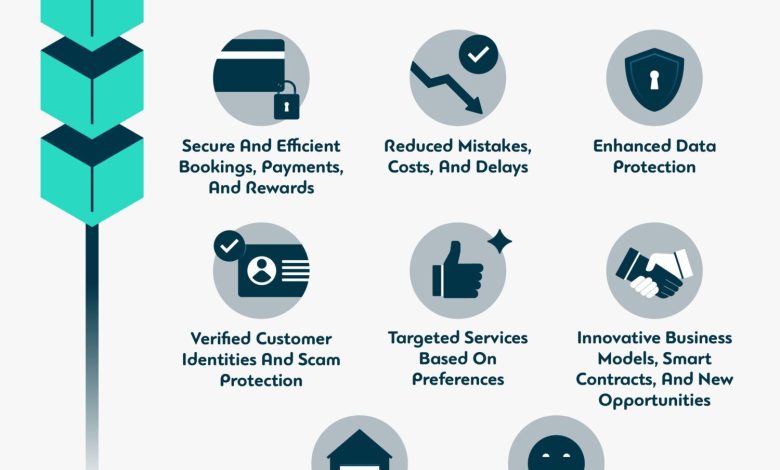Exploring Smart Contracts: How They Revolutionize Business Transactions

- Understanding the basics of smart contracts
- The benefits of using smart contracts in business
- How smart contracts are changing the way we do transactions
- Exploring the potential of smart contracts in various industries
- Challenges and limitations of smart contracts
- Tips for implementing smart contracts in your business
Understanding the basics of smart contracts
Smart contracts are self-executing contracts with the terms of the agreement directly written into code. They run on the blockchain, ensuring that once the conditions of the contract are met, the contract executes automatically without the need for intermediaries. This technology has the potential to revolutionize business transactions by providing a secure, transparent, and efficient way to conduct agreements.
Understanding the basics of smart contracts is essential for businesses looking to leverage this innovative technology. Smart contracts operate on the principle of “if-then” logic, where predefined conditions trigger specific actions. These contracts are immutable, meaning they cannot be altered once deployed on the blockchain, providing a high level of security and trust in the agreement.
One of the key benefits of smart contracts is their ability to eliminate the need for intermediaries, such as lawyers or brokers, reducing costs and streamlining the transaction process. Additionally, smart contracts can help reduce the risk of fraud and errors, as the terms of the contract are automatically enforced by the code.
The benefits of using smart contracts in business
Smart contracts offer numerous advantages for businesses looking to streamline their transactions and operations. These benefits include:
- Efficiency: Smart contracts automate processes that traditionally require manual intervention, reducing the time and resources needed to complete transactions.
- Transparency: The decentralized nature of smart contracts ensures that all parties involved have access to the same information, promoting trust and accountability.
- Security: By utilizing blockchain technology, smart contracts are highly secure and resistant to tampering or fraud, providing a level of protection not possible with traditional contracts.
- Cost-effectiveness: Smart contracts eliminate the need for intermediaries, such as lawyers or brokers, reducing transaction costs and speeding up the overall process.
- Accuracy: Smart contracts are executed automatically based on predefined conditions, minimizing the risk of human error and ensuring that agreements are carried out as intended.
Overall, the use of smart contracts in business can revolutionize the way transactions are conducted, offering a more efficient, transparent, secure, cost-effective, and accurate alternative to traditional contract methods.
How smart contracts are changing the way we do transactions
Smart contracts have completely transformed the way business transactions are conducted in today’s digital age. These self-executing contracts are built on blockchain technology, enabling parties to engage in secure and transparent transactions without the need for intermediaries. This revolutionary technology has significantly reduced the risk of fraud and errors, while also streamlining the entire transaction process.
One of the key advantages of smart contracts is their ability to automate various aspects of a transaction, such as payment processing and contract enforcement. By eliminating the need for manual intervention, smart contracts can significantly reduce the time and costs associated with traditional transactions. This increased efficiency not only benefits businesses but also enhances the overall customer experience.
Furthermore, smart contracts are highly secure and tamper-proof, thanks to their decentralized nature. Each transaction is recorded on a distributed ledger, making it virtually impossible for any party to alter the terms of the contract once it has been executed. This level of security instills trust among parties and ensures that transactions are conducted in a fair and transparent manner.
Overall, smart contracts are revolutionizing the way business transactions are carried out by providing a secure, efficient, and transparent alternative to traditional contracts. As more businesses and industries adopt this technology, we can expect to see a significant shift towards a more streamlined and trustworthy transaction process in the future.
Exploring the potential of smart contracts in various industries
Smart contracts have the potential to revolutionize business transactions across various industries. These self-executing contracts are encoded with predefined rules and regulations, eliminating the need for intermediaries and streamlining processes. By leveraging blockchain technology, smart contracts ensure transparency, security, and efficiency in transactions.
One industry that can benefit greatly from smart contracts is the real estate sector. Property transactions involve multiple parties, complex agreements, and extensive paperwork. Smart contracts can automate the process, ensuring that all conditions are met before the transaction is completed. This not only reduces the risk of fraud but also speeds up the process, saving time and resources.
Another industry that can leverage smart contracts is supply chain management. With multiple stakeholders involved in the supply chain, tracking goods, verifying authenticity, and ensuring compliance can be challenging. Smart contracts can automate these processes, enabling real-time tracking of goods, verifying the origin of products, and ensuring that all parties adhere to the agreed-upon terms.
Challenges and limitations of smart contracts
Smart contracts have undoubtedly revolutionized the way business transactions are conducted, offering increased efficiency, transparency, and security. However, like any technology, they come with their own set of challenges and limitations that need to be considered.
One of the main challenges of smart contracts is their complexity. **Understanding** the intricacies of coding and implementing smart contracts can be daunting for those without a technical background. This complexity can lead to errors in the code, which can have serious consequences for the parties involved in the contract.
Another limitation of smart contracts is their lack of flexibility. Once a smart contract is deployed on the blockchain, it is immutable and cannot be changed. This means that if there are any errors or changes that need to be made, a new contract must be created, leading to additional time and costs.
Security is also a major concern when it comes to smart contracts. While they are designed to be secure, vulnerabilities in the code can be exploited by malicious actors. This can result in funds being stolen or contracts being manipulated, leading to financial losses for the parties involved.
Furthermore, the legal **implications** of smart contracts are still being **debated** in many jurisdictions. The enforceability of smart contracts in a court of law is not yet well-established, which can create uncertainty for businesses looking to use this technology for their transactions.
In conclusion, while smart contracts offer many benefits for businesses, it is important to be aware of the challenges and limitations they present. By understanding these issues and taking steps to mitigate them, businesses can fully harness the power of smart contracts for their transactions.
Tips for implementing smart contracts in your business
Implementing smart contracts in your business can be a game-changer, streamlining processes and increasing efficiency. Here are some tips to help you successfully integrate smart contracts into your operations:
- Understand the technology: Before diving into smart contracts, take the time to educate yourself and your team on how they work and their potential benefits. This foundational knowledge will be crucial in implementing them effectively.
- Identify suitable use cases: Not all business processes are ideal for smart contracts. Identify areas where automation, transparency, and security are paramount to determine where smart contracts can add the most value.
- Collaborate with experts: Working with professionals who have experience in smart contract development can help ensure a smooth implementation process. Their expertise can guide you through potential pitfalls and best practices.
- Test thoroughly: Before deploying smart contracts in a live environment, conduct extensive testing to identify and address any bugs or vulnerabilities. This step is crucial in ensuring the reliability and security of your smart contracts.
- Establish clear governance: Define roles and responsibilities within your organization for managing and executing smart contracts. Establishing clear governance structures will help prevent misunderstandings and ensure accountability.
- Stay updated: The landscape of smart contracts is constantly evolving, with new technologies and best practices emerging regularly. Stay informed about the latest developments to ensure that your implementation remains current and effective.
By following these tips, you can leverage the power of smart contracts to revolutionize your business transactions and drive growth in your organization.



